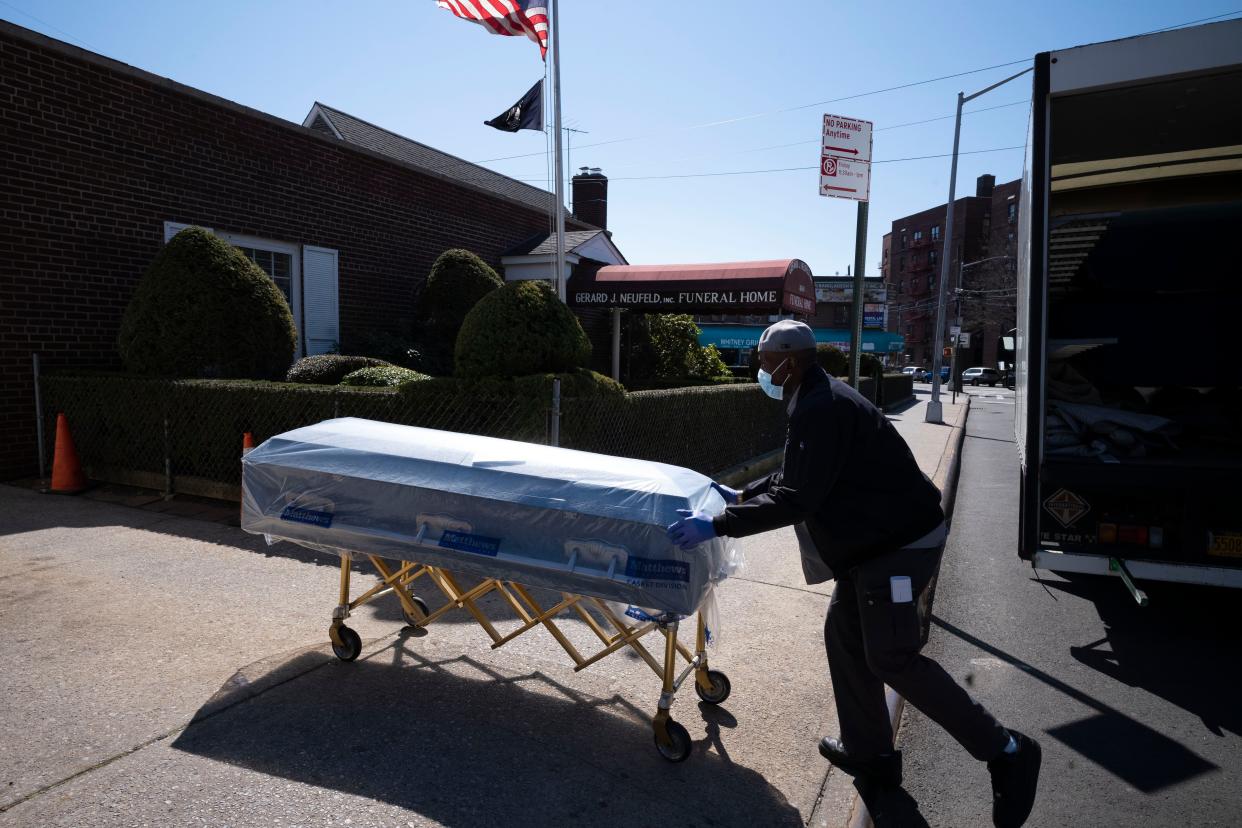Life expectancy in the U.S. takes sharp drop, Black and Hispanics hit hardest
U.S. life expectancy recently suffered its biggest decline since World War II, according to researchers from Virginia Commonwealth University, the University of Colorado Boulder and the Urban Institute.
In a new study published in the BMJ medical journal Thursday, the researchers found the average American’s lifespan decreased by 1.87 years between 2018 and 2020.
According to VCU, life expectancy among white Americans was down 1.36 years in 2020, but decreased by 3.25 years for Black people in the U.S. and 3.88 years for Hispanic Americans.
VCU professor Steven Woolf, the lead author of the study, said he was surprised to see that the global COVID pandemic widened the preexisting gap between the U.S. and peer countries.
“What I did not anticipate was how badly the U.S. would fare in the pandemic, and the enormous death toll that the U.S. would experience,” he said.

Johns Hopkins University puts the U.S toll from COVID at nearly 603,000. Brazil, India and Mexico are the only other nations to have topped the 200,000 mark.
Woolf said it was already “very worrying” that life expectancy rates in the U.S. hadn’t been keeping up with other developed countries over the past 40 years. While other nations also saw life expectancy number decline over the past two years, U.S. life expectancy dropped at 8.5 times the rate of 16 of its peer countries.
The gap in life expectancy between the U.S. and its peers grew by 1.88 years between 2010 and 2018.
“A longstanding and widening U.S. health disadvantage, high death rates in 2020, and continued inequitable effects on racial and ethnic minority groups are likely the products of longstanding policy choices and systemic racism,” the study concluded.
Peer countries cited by the study included Austria, Belgium, Denmark, Finland, France, Israel, the Netherlands, New Zealand, Norway, South Korea, Portugal, Spain, Sweden, Switzerland, Taiwan, and the United Kingdom. Citing incomplete data, the study did not include Australia, Canada, Germany, Italy or Japan.
A second study published in the medical journal JAMA Network Open on Thursday also found that life expectancy in the U.S. had declined during the pandemic, again, hitting people of color the hardest.
Overall, COVID-19 shortened U.S. life expectancy on average from 78.74 years to 77.43 years, a team from the University of Southern California and Princeton University found.
Black people in the U.S. reportedly saw their average life expectancy drop at twice the rate of white Americans in 2020. The life expectancy gap between Latino Americans and white Americans was said to have tripled.
Researchers in that study also were surprised by their bleak findings. They’d projected in October that average life expectancy would drop by 1.13 years in the U.S, but instead it fell by 1.31 years.
